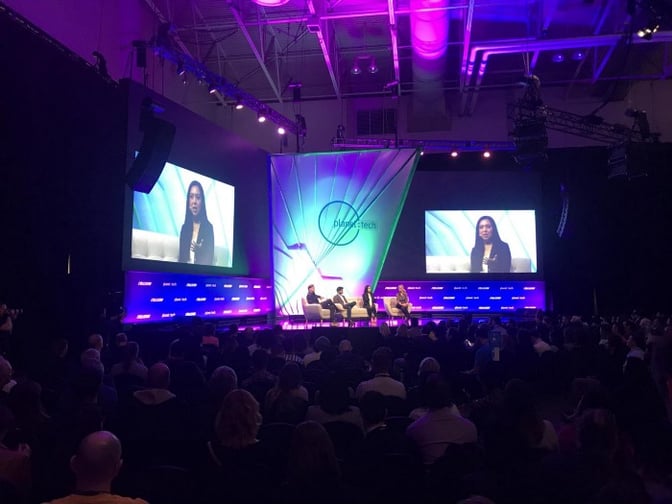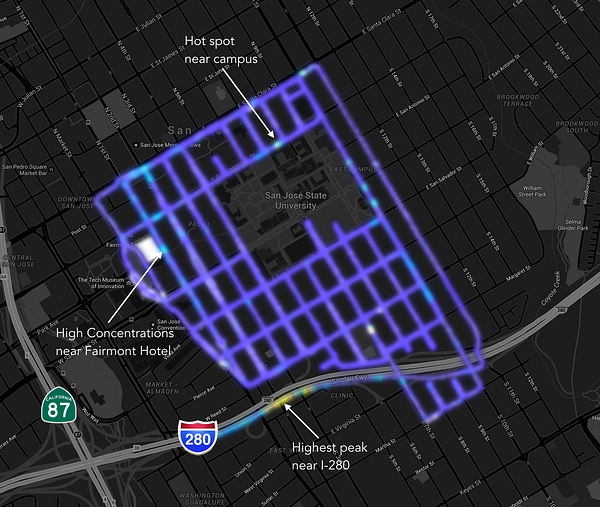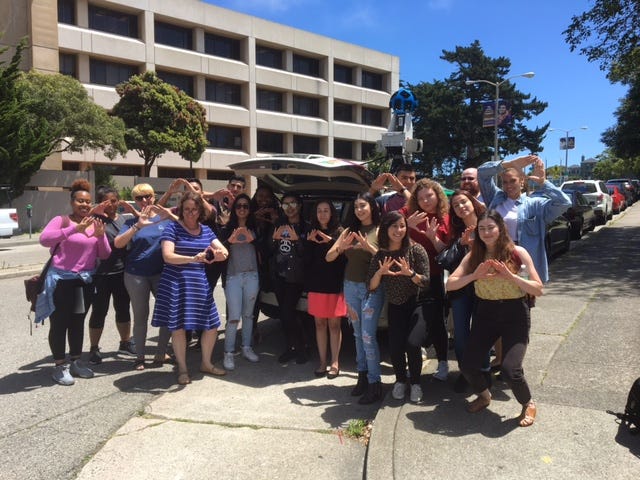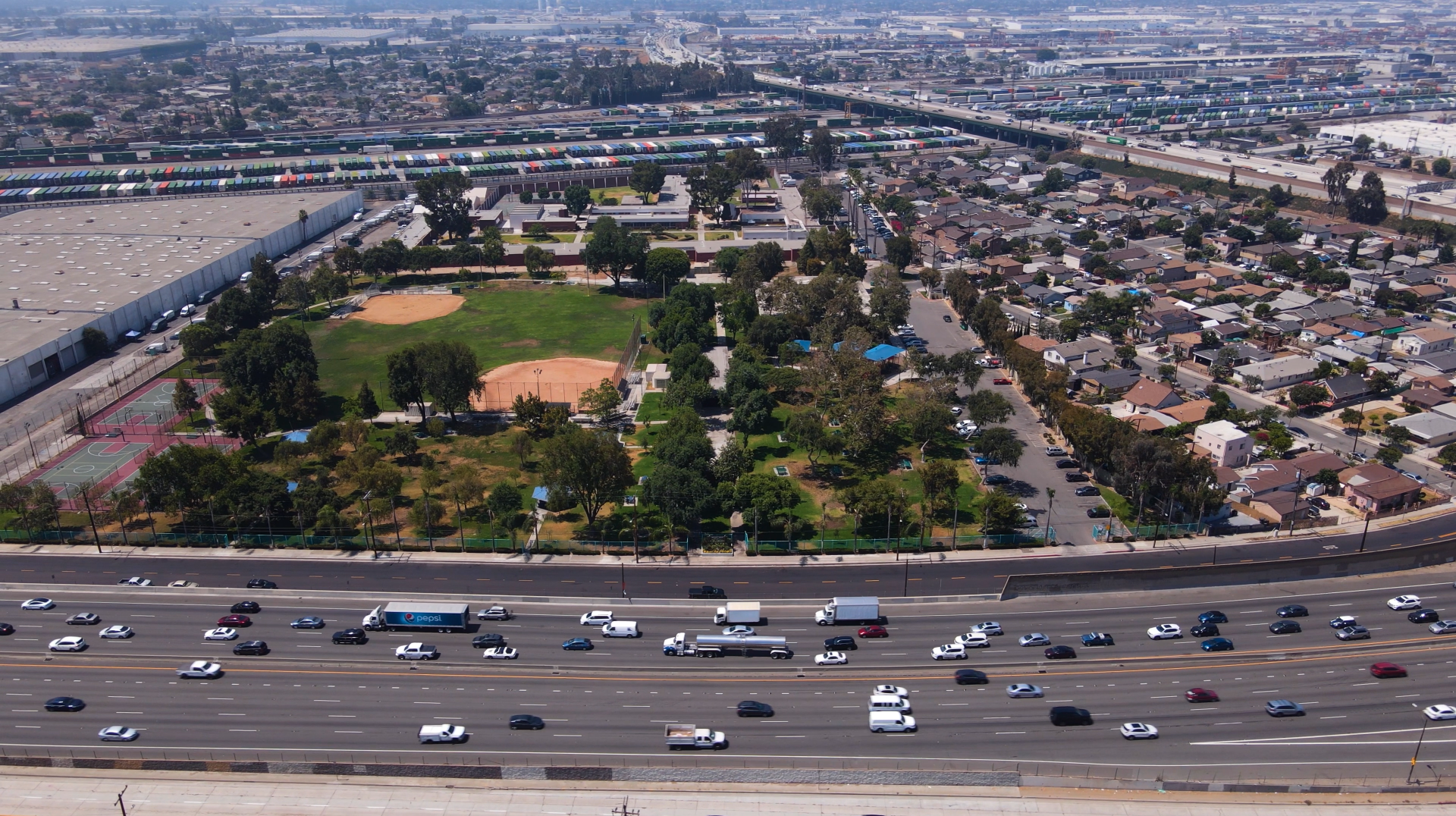As the world continues to set new records in global climate emissions, humanity is increasingly experiencing the personal health effects caused by polluted air. This year alone, carbon dioxide in the atmosphere exceeded 415 parts per million for the first time in human history, while a new global comprehensive review has found evidence that air pollution affects every organ in the body at every stage of life.
The public conversation around climate changing emissions has largely been focused on carbon dioxide and a rising global average temperature. However, our climate is affected by a wide range of pollutants that impact the health of both the planet and people. Hyper-local air quality mapping and measurement can reveal solutions for cities and communities to address the wide range of pollutants affecting our health.
Aclima participated in the Collision Conference on the planet:tech stage this Summer in Toronto, Canada. The conference centered on the intersection of technology, health, and the environment and gathered luminaries from around the world, such as Canadian Prime Minister Justin Trudeau and former Executive Secretary of the UNFCCC and architect of the Paris Climate agreement, Christiana Figueres. Many of the participants spoke about the importance of technology as a tool to address climate change. Canadian Minister of the Environment and Climate Change, Catherine McKenna, stressed technological innovation as necessary for taking action on emissions.
In a fireside chat, Christiana Figueres expressed the need to maintain optimism as we tackle the challenges ahead to curb climate change. Since negotiating the historic Paris Agreement in 2015, Figueres has focused on air pollution and advocating for everyone’s right to clean air through Every Breath Matters, a coalition of climate activists and world leaders committed to both raising awareness about air pollution’s devastating health impacts, and emboldening urgent action to clean up the air. She conceded that while technology is a contributor to climate change, it is also a source of innovation that can help decrease global emissions. Figueres pointed to the scale at which climate technologies are being used globally to monitor the vitality of the planet, and to identify solutions to emissions-related issues. Figueres also stressed that we have created a huge level of inequality around the globe, and we must democratize energy, transportation, housing conditions, education, and more, since technological innovation is not going to be enough to solve the problem if we do not work in a more collaborative manner.
Aclima CEO and Co-Founder, and Every Breath Matters Clean Air Champion, Davida Herzl spoke to the importance of emissions measurement on the panel The war on carbon — 1.5 degrees is too much, which included Kevin Conrad, Executive Director of the Coalition for Rainforest Nations; Sue Allchurch, Chief Engagement Officer at the UN Global Compact; and Apoorv Sinha, Founder and CEO of Carbon Upcycling Technologies. Davida also served as a judge for planet:tech’s first pitch competition.
In her opening for the panel discussion, Sue Allchurch identified three priorities for addressing climate emissions: enabling innovation for climate mitigation and reduction of CO2 emissions; capturing and sequestering carbon; and bringing the government and private sector together to implement and scale climate solutions. Davida pointed out how data and measurement are a critical enabler for change, and added the importance of showing how pollution directly impacts human health today as a means to spark urgency for change. As an example, she spoke about AB 617, a law tackling California’s air quality concerns which requires local data and local action to both reduce emissions and protect public health. Aclima is now working with regulators across California to support its implementation by bringing hyper-local air quality measurement to environmental justice communities across the State. With this new view of emissions, local governments are able to take rapid and targeted action to reduce the pollution damaging our communities and our environment.

The conference showcased the wide consensus across the public and private sectors that we need urgent, collective and radical innovation to address the climate crisis. Comprehensive, localized data and measurement will play an enabling role in unlocking radical action by helping governments, companies and the public precisely understand emissions sources where they are occurring.
Summing up the importance of a comprehensive approach to emissions measurement, Davida said, “We’re not talking about PM 2.5, methane, or black carbon. It’s all the same problem. We can’t simplify it to CO2. We have one shot to really fix this as a society and we think that data plays a critical role.” With Aclima’s platform, this comprehensive and local view of emissions can be generated in a matter of months, not years, meeting the urgent timeline for action in cities around the world.
View the full panel video here to learn more:
Share this
You May Also Like
These Related Stories

Aclima, Google, and the EPA Discuss Their Partnership for Planetary Health

The Community Becomes the Classroom

/2022_Aclima_Logo_Mist_500px_wR.png?width=501&height=193&name=2022_Aclima_Logo_Mist_500px_wR.png)
